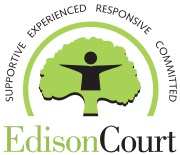In a recent sit-down, Matt explains Ravenhill's RAMP program.
What does RAMP stand for?
RAMP is Ravenhill’s Accountability and Mentoring Program. Accountability plays a major role in the curriculum, as it often leads to further change in the juveniles that are referred to the program.
How are juveniles referred to your program?
Based on the youth’s risk level on their Youth Level of Services (YLS) assessment. Referrals for RAMP are approved based on their risk level in the following domains on the YLS: Family Circumstances, Personality/Behavior, and Attitudes/Orientation. The youth must score a moderate to high level in any of those domains to be approved for RAMP.
Who will be working with the juveniles that are referred to RAMP?
A RAMP mentor will be assigned to each youth. These mentors are Bachelors level professionals, whose degrees range from criminal justice, social work, and psychology. These individuals are trained in motivational interviewing, mandated reporting, managing aggressive behaviors (MAB), and other necessary trainings.
How is the juvenile’s progress in the program monitored?
After each mentoring meeting, the RAMP mentor will write a progress note, which reflects on the client’s achievement toward their goals and strengths. Additionally, a monthly report is provided to the Juvenile Probation Officer, where their progress in the identified YLS domains is highlighted, as well as strengths and concerns. Lastly, one professional assessment that is used during the course of RAMP includes the Behavior Assessment Scale for Children (BASC), which includes a self-report and parent assessment which is completed pre and post.
What types of services are offered through RAMP?
RAMP offers youth an opportunity to connect more with the community. Mentoring meetings can be held at the youth’s home; however, RAMP mentors encourage community involvement. More community involvement includes, connecting with resources like the public library, seeking community service opportunities, employment/life skills training, and more steady involvement in pro-social activities.

Add new comment